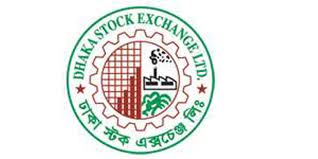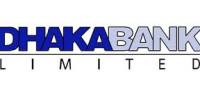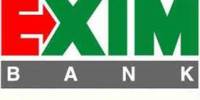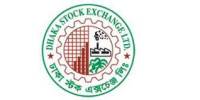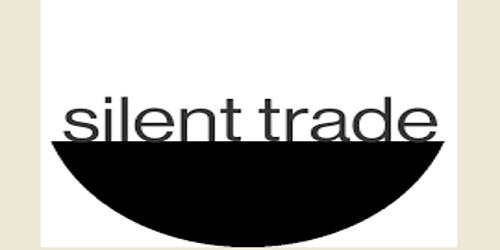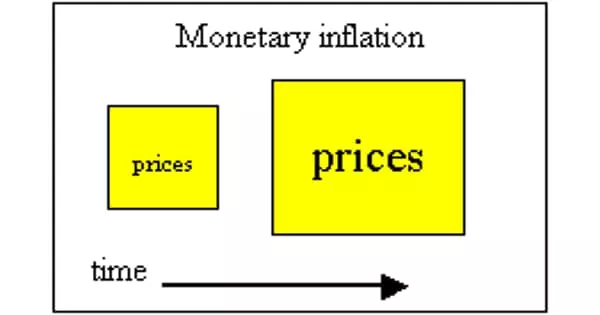EXECUTIVE SUMMARY
The Masters of Business Administration (MBA) program is a fulltime professional program. The program is designed to meet the needs of the students who want to develop their career as executives in the fields of different business areas as well as teaching and research positions in different institutions. To obtain this degree, Internship program is an integral part. Along with the theoretical knowledge such practical knowledge is very much crucial for business students.
The whole working process of Sharp Securities Limited is divided into 3 sections i.e. general Trading section, CDBL Section & Accounts section. This report has been presented “Present Scenario of Dhaka Stock Exchange – DSE. A Case Study on Sharp Securities Ltd.” based on observation from total activity of Sharp Securities Limited as well as Dhaka Stock Exchange-DSE. Here trading section plays important roles through providing trading securities for the customers. Securities trading are the key player in this member house named Sharp Securities Limited.
After the analysis I have found that to survive in a competitive and developing financial market like ours Sharp Securities Ltd. has to more service oriented and the efficiency of the securities brokering personnel should be developed. From SWOT analysis I have found that Sharp Securities Ltd. has colossal opportunity in the securities brokering sector to shine and can establish a strong pillar in the market.
The report is prepared on the basis of practical experience at Sharp Securities Ltd. The Internship program helped me a lot to learn about the practical situation of a financial institution. This program helped me to implement my theoretical knowledge into practical work environment.
Considering the Current Market Situation, I have tried to find out the future prospect of this company and the performance of Dhaka Stock Exchange too. Ratio and trend analysis has been induced to get absolute idea. The overall performance of the Sharp Securities Ltd. is not too bad. Still it needs to focus on developing the existing services provided by SSL and increasing more facilities as demanded by the customer.
Origin of the Report
As a mandatory requirement of the Masters of the Business Administration (MBA) program under Business Faculty at Stamford University Bangladesh, this report entitled – “Present Scenario of Dhaka Stock Exchange – DSE. A Case Study on Sharp Securities Ltd” is a connived depiction of practical experience at one of the Branch office of Sharp Securities Limited (SSL) at Baridhara DOHS.
I started my journey with SSL on December 02, 2010 as a trainee executive and now I am serving here as a junior executive. My institution supervisor at Stamford University Bangladesh, Mostofa Mahmud Hasan (Assistant Professor), assigned me the topic of the term paper & duly approved it. The report will definitely identify how the Capital Market is working at Bangladesh and how the member houses are cooperating, and also will help to apply theoretical knowledge in the practical life
Background of the Report
Faculty of Business Studies, Stamford University Bangladesh, needs have trained MBA students for the business communities of Bangladesh. Rapid and large-scale economic development is dependent on the promotion of efficient business people in a country which acts as a strong catalyst agent for the purpose highly trained MBA personnel are a must for the realization of this economic aspiration of our country. IBS, therefore, embarked upon this venture for realizing the economic goal of the nation.
As a partial fulfillment of the MBA program, internship is a requirement for MBA students at the end of the completion of all the credit courses. Under internship program students are placed in an organization or a financial for undergoing an internship for a period of 3(three) months in order to make us familiar with the real world situation and practical experience in a business firm.
As a MBA student and as per requirement of this institution, I also attached with an organization to do my internship program for three months. I have completed my internship from “Sharp Securities Ltd“, a commercial and service oriented financial institution. During that time I have worked in various sectors and tried to obtain practical knowledge so far I could. From my overall observation and working experience finally I am going to prepare the report on “Present Scenario of Dhaka Stock Exchange – DSE. A Case Study on Sharp Securities Ltd”.
Objective of the study
The purposes of this report cognates the internship purpose. The internship objective was to gather practical knowledge and experience of the corporate working environment with the close approximation to the business firm and the experts who are leading and making strategic decisions to enhance the growth of an institution. To this regard this report is contemplating the knowledge and experience accumulated from internship program. The prime objectives are:
- To present an overview and brief introduction of Securities Exchange Commission of Bangladesh, Dhaka Stock Exchange, and a member house named Sharp Securities Ltd.
- Ø To know the future prospect of Capital Market in Bangladesh.
- To know deeply about CDBL Activity.
- To learn about the procedure of handling Pay-In & Pay-Out of Securities.
- To make analysis of Income and Expenses of a member house.
- To know the growth rate of DSE.
Scope
The scope of the study is only limited to a branch Office. The report covers its overall department wise function, structure, and performance. The report also covers details about the current situation and future prospect of DSE.
Methodology
Both the primary as well as the secondary form of information was used to prepare the report. The details of these sources are highlighted below.
Primary Sources Data:
During my internship program, I worked in different sectors. From every sector I gathered different kinds of information relating to that particular section. I always discussed about the different terms with executives of the organization. Sometimes I spoke with the client to know the fact. Above all I observe and did everything very carefully and noted down that instantly in my notebook for my report purpose. .
Secondary Sources
Sources of secondary data can be defined as:
Internal Sources
Annual report of Dhaka Stock Exchange.
Brokerage House Financial Statement.
Memorandum and Article of Sharp Securities Ltd.
Any information and literature regarding Capital Market
External Sources
Different books (academic & securities market related).
Magazine related to securities market.
Newspapers
Website information
Limitation
The Internship was only for twelve weeks, of which first four weeks have been spent in orientation to the organization and concerned department. It was very difficult to collect all the required information in such a short period. Although the particular study is extremely extensive in nature, hard effort was given to make the study worthwhile and meaningful even then there exists some limitations. These are as follows:
- Lack of available published data.
- Lack of annual report.
- Luck of systematic work environment for intern.
- Working place is good for work but there was lack of training facility.
- Although I have put the best efforts to meet the report objective however due to the short period of time the detail information gathered May not possible.
- Finally, my personal scantiness of knowledge especially in research, studies about securities market operation.
CHAPTER: 02
Capital Market of Bangladesh & its Regulatory Framework
Capital Market
Capital market is very much important for the economic development of any country. If it is developing country like Bangladesh then importance of capital market is enhanced sharply.
We know that capital market plays a critical role for bringing deficit units and surplus units in one place. It facilitates transfer of fund from surplus unit to deficit unit. Alternatively we can say that, capital market facilitates the transfer funds from those who have excess funds to those who need funds. Those participants who provide funds to the financial markets are called surplus unit. Household are the main types of surplus unit. Participant who use financial markets to obtain funds are called deficit units. Many deficit units issue (sell) securities to surplus units in order to obtain funds. A security is a certificate that represents a claim on the issuer. Deficit units have productive investment opportunity. So we can say that in order to promote greater economic efficiency, channeling of funds from surplus unit to deficit unit is very much crucial. Indeed, well functioning capital market is a key factor in producing high economic growth, and poorly performing capital market is one reason that many countries in the world remain desperately poor. Activities in capital market also have direct effects on personal wealth, the behavior of businesses and consumers, and the cyclical performance of the economy.
Capital Market of Bangladesh
Our capital market is an emerging market. In the world there are two markets which showed almost 100% growth rate, one is stock exchange of china and another is Dhaka stock exchange. But we were not able to keep this pace. However capital market of Bangladesh has been developing by the effort of different related parties along with SEC. if everything is going on the right track we hope that we will have a very strong capital market in recent future. As a result economic development will be achieved. It is a matter of hope that some renowned brokerage firms of the world have shown their extreme interest to work in the capital market of Bangladesh. Bangladesh Capital Market consists of:
• Dhaka Stock Exchange
• Chittagong Stock Exchange
• A central depository system (CDBL)
• 338 stock brokers and dealers.
• 33 Merchant Bankers; and
• Other market intermediaries are operating in Bangladesh capital market under the
regulatory regime of SEC.
The Securities and Exchange Commission (SEC) is the regulator of capital market. It has been continuing its reform activities of strengthening legal and institutional framework for creating a fair, transparent and accountable capital market. The investors have become more confident in investing share market due to timely disclosure of financial statements and information, payment of declared dividend and annual general meeting in time, proper supervision of securities transactions and market intermediaries, investor awareness program and resolution of investors complaints etc. Due to the above activities the ratio of market capitalization to GDP has reached at double digit for the first time in the history of Bangladesh capital market. The Dhaka Stock Exchange (DSE) was set up in 1954 and started its operation in 1956. The trading activities of the exchange were suspended during the time of independence but were resumed again in 1976. DSE is a self-regulated not-for-profit organization. The Chittagong Stock Exchange Ltd (CSE) was set up in 1995. It is also a self-regulated not-for profit organization like DSE. The main things of the capital market of market are followings:
• The country’s capital market is predominantly equity- centric and supply of securities with good fundamentals is inadequate.
• Inadequate supply of good fundament securities is one of the main problems of capital market of Bangladesh but we know that it is very essential to ensure adequate supply of securities. The government has been trying to bring shares of government and non-government companies in the capital market. For this, a number of companies have converted into public limited company to increase supply of securities and run the companies commercially and accountably. The government has taken initiatives to bring the shares of state – owned company under power and telecommunication sector in the stock market. Some of the state run institutions have already come into the market and it is expected that shares of the others companies will be offloaded soon. As a result, the depth of the capital market and investment opportunities in securities market will be increased. Beside this the commission has been communicating with the national and multination companies under private sector to raise capital from capital market. Meanwhile a number of multinational companies communicated the Commission concerning fund collection from share market of off-loading shares.
• To attract profitable companies into the market, direct listing framework has adopted but due to some limitation this method is canceled. Instead of direct listing method alternative method of pricing, Book building method was introduced in 2010 but this method also failed due to the lop hole of the rules and regulations. Currently SEC is thinking to reintroduce the book building method by removing the previous flaws of the regulation.
• Bond market has not developed yet. There are very few numbers of debentures and one perpetual bond are listed on the exchanges. For development of the secondary bond market SEC along with different parties are working hardly. Still there is no complete separate regulation for bonds. But it is matter of hope that it will come within a very short time.
• Derivative market, future market, commodities market, options market and swap market have not come into existence yet. But these are very much crucial to have a comprehensive investment framework. Capital market specialists are working hard to start these markets.
• Dr. Mirza Azizul Islam, the Chairman of SEC, inaugurated the operation of Over-The– Counter (O-T-C) Market in the Chitagong Stock Exchange (CSE) on July 4, 2004. Earlier only the securities of the companies that raised capital through public offering were traded on the Dhaka and Chittagong stock exchange. After the introduction of OTC market the share of companies delisted from stock exchanges and the non-listed companies that raised capital under the Securities and Exchange Commission (Issue of Capital) Rules, 2001 could be traded on CSE. It is expected that the O-T-C market would open up new avenue for trading of shares of de-listed securities and expand the scope for development of small and medium scale industries in the country through facilitation of transaction of their securities on the secondary market.
• Number of mutual fund is not sufficient but it has been increasing.
• Merchant Banking activities are not satisfactory but Commission has been working to improve the situation and has been improving day by day.
• There is a scope to introduce Exchange Traded Fund (ETF), index fund. On other hand it is necessary to be cautious to utilize these opportunities because of recent collapse in the financial system of the world. Financial engineering can be promoted along with caution.
• Central Depository Bangladesh Limited (CDBL) has started commercial operation upon receipt of business commencement certificate from the Securities and Exchange Commission on December 23, 2003. Now on, the issuance of primary shares through public offering has to be made through CDBL in dematerialized form that helps enhance the transparency and bring dynamism in the capital market. After the establishment of Central Depository Bangladesh Limited, distribution of IPO shares is conducted through electronic system and applicants are required to mention beneficiary owners account (BO) in the application form. Central Depository System has brought a revolutionary change in the functioning of capital market.
• The disclosure of objective financial state of affairs in the financial statements of issuer companies is crucial for sound corporate governance as well as to enable investors to make informed investment decision. Although this is not developed yet, but it has been progressing
• To improve corporate governance currently there are corporate governance guidelines. It is implemented on comply or explain basis. Hope that it will help to improve corporate governance practice of the issuer companies.
• There is no investment advising regulations but it becomes a crying need recently.
• All of the necessary rules and regulations have not formulated yet. However SEC has been formulating necessary regulations day by day.
• The Commission has taken a project ‘Improvement of Capital Market Governance
Program’ concerning capital market reforms, institutional and human resource development, and supervision activities which started functioning. The project also includes development and reforms of surveillances system, price determination, and alternative proposal of distribution system, establishment of a securities institute and preparation of its curriculum.
• In order to have a dynamic, vibrant and transparent capital market educating issuers, market intermediaries and investors about securities laws and investment mechanism are of utmost importance. At present, there is no specialized dedicated institution in Bangladesh to cater to these needs. Accordingly, the Commission has been working hardly to set up a capital market training Institute.
• Recently our capital market has achieved a notable progress. The notable progress in the development of the capital market and enhanced transparency in securities transactions have been achieved with the active cooperation of the Government and all institutions and organizations related to capital market.
• To conclude, the capital market of Bangladesh is now poised to play its due role as a conduit for financing investment and thereby making a notable contribution to economic growth, employment creation and poverty alleviation.
Market Scenario (comparison of the past and present):
• Market Capitalization of Dhaka Stock Exchange as a proportion of gross domestic
Product (GDP) increased to 47.19% of GDP on 31 January 2011 from 2.27% on 30 June 2000.
• Market capitalization of all listed securities in Dhaka Stock Exchange is increased From Taka 54 billion on June 30, 2000 to Taka 2349.353 billion on 31 January, 2011.
• Total Number of securities listed with DSE on 31 December, 2011was 476 against 163 on June 30, 2000.
• DSE General Share Price Index stood at 6639.18 on 11 marches, 2011 compared To 561 on 30 June 2000.
Reforms or measures to be made for improving capital market:
- • Increase of supply of securities issued by companies having good fundamentals irrespective of Govt. and private sector;
- • Introduction of attractive and effective alternative IPO pricing;
- • Introduction of Bond, derivatives and Commodities market;
- • Establishment of a clearing corporation to settle transactions electronically;
- • Improvement of the Merchant Banking Operations;
- • Increasing the number of mutual funds;
- • Enhancing the investors’ confidence;
- • Strengthening of surveillance system of SEC to prevent unethical practices;
- • Capacity building of SEC
Growth Potentials
• Market capitalization of Dhaka Stock Exchange as a proportion of gross domestic product
(GDP) is the order of 47.19 per cent of GDP.
• In contrast, the relevant orders of magnitude in India, Hongkong and Singapore are respectively 100.46 per cent, 297.51 percent & 1202.62 percent.
• Given the size of population of Bangladesh and steady growth of its GDP exceeding five percent over the past one decade, considerable unrealized opportunities exist for utilizing the capital market as a vehicle for raising long term investment finance.
• Increase of supply of securities issued by companies having good fundamentals irrespective of Govt. and private sector;
• Introduction of attractive and effective alternative IPO pricing Method including reintroduction of Book Building method as early as possible.
• Introduction of Bond, derivatives and Commodities market;
• Establishment of a clearing corporation to settle transactions electronically;
• Improvement of the Merchant Banking Operations;
• Increasing the number of mutual funds;
• Enhancing the investors’ confidence;
• Strengthening of surveillance system of SEC to prevent unethical practices;
•Capacity building of SEC.
CHAPTER: 03
An overview of Securities and Exchange Commission Bangladesh
History of Securities and Exchange Commission (SEC)
The Securities and Exchange Commission (SEC) was established on 8th June, 1993 under the Securities and Exchange Commission Act, 1993. The Chairman and Members of the Commission are appointed by the government and have overall responsibility to administer securities legislation. The Commission is a statutory body and attached to the Ministry of Finance.
Members perform the following functions:
- Serve as the members of the Commission and supervise its management.
- Provide policy direction to industry and staff and promulgate legally binding rules.
- Act as an administrative tribunal for decisions on the capital market.
Mission of the SEC:
- Protect the interests of securities investors.
- Develop and maintain fair, transparent and efficient securities markets.
- Ensure proper issuance of securities and compliance with securities laws.
The Commission’s main functions:
- Regulating the business of the Stock Exchanges or any other securities market.
- Registering and regulating the business of stock-brokers, sub-brokers, share transfer agents, merchant bankers and managers of issues, trustee of trust deeds, registrar of an issue, underwriters, portfolio managers, investment advisers and other intermediaries in the securities market.
- Registering, monitoring and regulating of collective investment scheme including all forms of mutual funds.
- Monitoring and regulating all authorized self regulatory organizations in the securities market.
- Prohibiting fraudulent and unfair trade practices relating to securities trading in any securities market.
- Promoting investors’ education and providing training for intermediaries of the securities market.
- Prohibiting insider trading in securities.
- Regulating the substantial acquisition of shares and take-over of companies.
- Undertaking investigation and inspection, inquiries and audit of any issuer or dealer of securities, the Stock Exchanges and intermediaries and any self regulatory organization in the securities market.
- Conducting research and publishing information.
Central Depository Bangladesh Limited (CDBL)
Central Depository Bangladesh Limited (CDBL) was incorporated as a public limited company on August 2000 to operate and maintain the Central Depository System (CDS) of Electronic Book Entry, recording and maintaining securities accounts and registering transfer of securities; changing the ownership without any physical movement or endorsement of certificates and execution of transfer instruments. Securities and Exchange Commission has issued a Certificate to CDBL on December 23, 2003 for starting depository business as a depository. A depository is like a bank for shares instead of money. Instead of holding shares in the form of certificates, investors have accounts in the depository and are able to move securities and settle stock exchange transactions by an electronic update of their accounts.
Brokerage/Member house
A brokerage house, also called a brokerage firm or member house, is a company licensed to buy and sell securities. Acting as an intermediary between buyers and sellers, a brokerage house typically employs brokers who carry out the wishes of the firm’s clients as they pertain to the trading of stocks. Broker services are usually provided on a commission basis.Commission amounts charged for the buying and selling of securities vary with each brokerage house. Often, the price per trade is indicative of the level of service the firm offers. For example, a brokerage house that charges fees on the lower end of the scale may not execute trades as quickly as one that charges higher fees. Likewise, a firm that charges higher commissions usually offers more personalized service.
In addition to commissions, a brokerage firm may charge various other fees. These fees may include charges for transferring assets, closing an account, and wiring money. Additionally, a brokerage firm may require the payment of IRA custodian fees, as well as annual services charges and fees related to periods of account inactivity. Depending on the policies of the brokerage house, a client’s account may also incur a fee for failing to meet a minimum required account balance.
A brokerage house may offer a variety of investment products or specialize in just one or two. Typical choices include stocks, mutual funds, and options, as well as government and corporate bonds. Over-the-counter (OTC) bulletin board stocks may be offered as well.
Functions of Brokerage House:
- A brokerage house is a company licensed to buy and sell stocks or securities.
- It’s Act as an intermediary between buyers and sellers.
- A brokerage house typically employs brokers who carry out the wishes of the firm’s clients as they pertain to the trading of stocks. Broker services are usually provided on a commission basis.
- A brokerage house may offer a variety of investment products or specialize in just one or two. Typical choices include stocks, mutual funds, and options, as well as government and corporate bonds. Over-the-counter (OTC) bulletin board stocks may be offered as well.
- Cash kept in a brokerage house money-market account may carry a higher interest rate than money held in a regular bank account.
Types of Securities and Exchange Commission
Bangladesh has two Stock Exchanges, Dhaka Stock Exchange (DSE), established in 1954 where trading is conducted by Computerized Automated Trading System and Chittagong Stock Exchange (CSE), established in 1995 which is also conducted by Computerized Automated Trading System. All exchanges are self-regulated, private sector entities which must have their operating rules approved by the SEC.
Some are parts:
